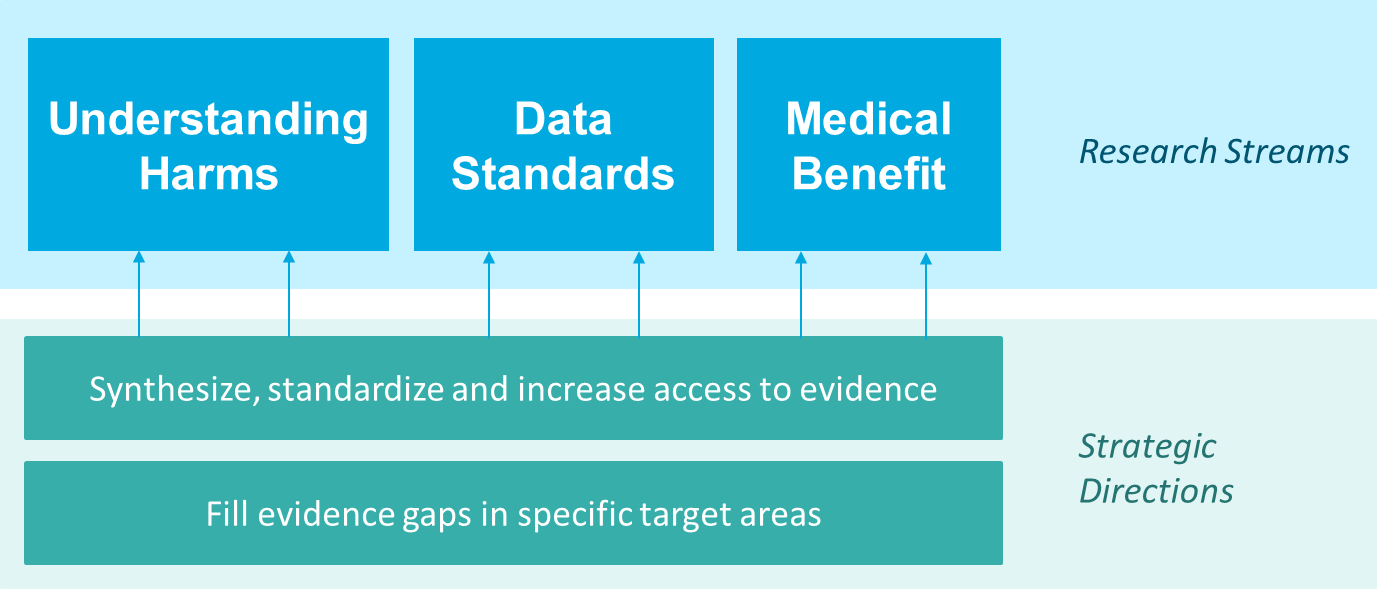Integrated Cannabis Research Strategy: Components

Figure 1 long description
The ICRS will support three parallel streams of research: Understanding Harms, Data Standards, and Medical Benefit. Underlying each of these streams are research activities, which will serve to synthesize, standardize and increase access to evidence, and fill in evidence gaps in specific target areas.
ICRS principles
- Provide evidence to meet federal, provincial, territorial and knowledge user needs
- Ensure data/information sharing
- Facilitate collaboration across stakeholders at all levels, ensuring social and cultural relevancy to stakeholders
- Ensure inclusion of Indigenous Peoples in the research process, with culturally-appropriate considerations throughout, including meaningful engagement with Indigenous leaders
- Ensure adherence to the highest ethical standards of research
- Ensure sex and gender are integrated appropriately throughout the research process
- Provide transparency and accountability for ICRS governance activities, including measures to identify and manage real, perceived and ideological conflicts of interest
ICRS specific objectives
- Increase cannabis health research capacity
- Promote open data sharing
- Build the evidence base on the balance of benefits and harms of cannabis use under different contexts
- Get evidence into the hands of health care providers, policy makers and other knowledge users
- Establish rigorous clinical evidence for therapeutic use of cannabis (including its constituents or derived products)
CIHR Institutes
- Institute of Neurosciences, Mental Health and Addiction
- Institute of Cancer Research
- Institute of Circulatory and Respiratory Health
- Institute of Human Development, Child and Youth Health
- Institute of Indigenous Peoples’ Health
- Institute of Musculoskeletal Health and Arthritis
Other Resources
- Date modified: